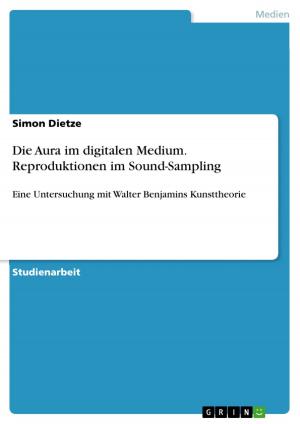The effectiveness of safety management systems implementation in aviation maintenance
Integrate the human factors perspectives for safer operational outcomes
Nonfiction, Social & Cultural Studies, Social Science, Methodology| Author: | Kok Meng Chan | ISBN: | 9783656631132 |
| Publisher: | GRIN Verlag | Publication: | April 7, 2014 |
| Imprint: | GRIN Verlag | Language: | English |
| Author: | Kok Meng Chan |
| ISBN: | 9783656631132 |
| Publisher: | GRIN Verlag |
| Publication: | April 7, 2014 |
| Imprint: | GRIN Verlag |
| Language: | English |
Research Paper (undergraduate) from the year 2011 in the subject Sociology - Methodology and Methods, grade: 98%, University of Newcastle, course: Masters Of Aviation Management, language: English, abstract: Safety management system (SMS) program is a comprehensive, systematic and continuous process for recognizing hazards and managing risks for a viable aviation business to enhance safety. With proper guidance and planning from current literature, it recognizes the explicit complexity to distill more insights to the aspects of an SMS implementation. Real rigor must be in place for the underlying mechanism to detect the weaknesses within the defense mechanism, fix it before they are manifested as an undesired event. This is a shift from the traditional reactive systems to proactive/predictive systems. ???? SMS is not a process to solve a specific safety issue, but rather an explicit, consistent and structured protocol which can resolve many issues to reduce risk realistically or as low as reasonably practicable (ALARP). The four essential constituents- safety policy and goals, risk mitigation management, safety assurance and safety promotion, represents the foundation for SMS. This article delineates the SMS processes and the integration of human factors perspectives with the intent to propose an initial implementation program for a maintenance organisation into four phases. Ultimately, the effectiveness of an SMS implementation means the organization can manage the complexity of these mechanisms to defend against risk incubation to ALARP.
Research Paper (undergraduate) from the year 2011 in the subject Sociology - Methodology and Methods, grade: 98%, University of Newcastle, course: Masters Of Aviation Management, language: English, abstract: Safety management system (SMS) program is a comprehensive, systematic and continuous process for recognizing hazards and managing risks for a viable aviation business to enhance safety. With proper guidance and planning from current literature, it recognizes the explicit complexity to distill more insights to the aspects of an SMS implementation. Real rigor must be in place for the underlying mechanism to detect the weaknesses within the defense mechanism, fix it before they are manifested as an undesired event. This is a shift from the traditional reactive systems to proactive/predictive systems. ???? SMS is not a process to solve a specific safety issue, but rather an explicit, consistent and structured protocol which can resolve many issues to reduce risk realistically or as low as reasonably practicable (ALARP). The four essential constituents- safety policy and goals, risk mitigation management, safety assurance and safety promotion, represents the foundation for SMS. This article delineates the SMS processes and the integration of human factors perspectives with the intent to propose an initial implementation program for a maintenance organisation into four phases. Ultimately, the effectiveness of an SMS implementation means the organization can manage the complexity of these mechanisms to defend against risk incubation to ALARP.















